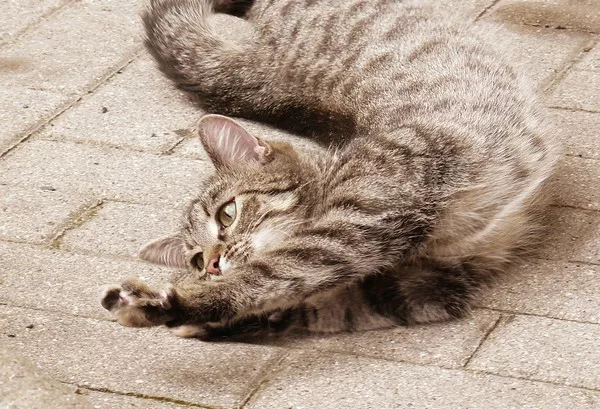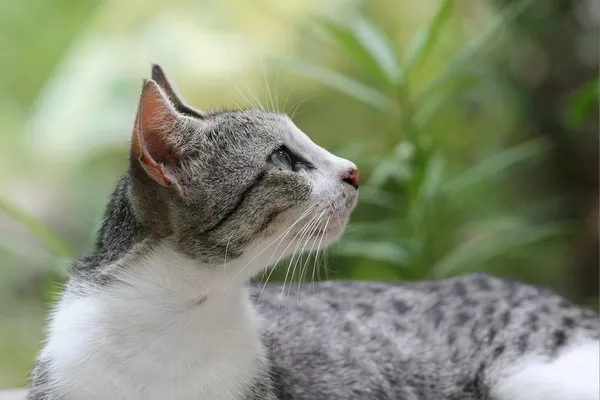The dietary needs of our feline companions are a topic of constant curiosity for cat owners. As we explore various options to enhance their nutrition, eggs often emerge as a source of potential benefits. In this comprehensive guide, we will delve into the question: Are eggs good for cats? Understanding the nutritional components, potential risks, and proper preparation can help us make informed decisions about incorporating eggs into our feline friends’ diets.
The Nutritional Powerhouse: What Eggs Bring to the Table
1. Protein Prowess
Eggs are renowned for their high protein content, making them a valuable addition to a cat’s diet. Protein is essential for cats as it supports muscle development, maintenance, and overall health. The amino acids found in eggs are considered highly digestible, contributing to the overall well-being of our feline companions.
2. Vitamins and Minerals Galore
Eggs pack a punch when it comes to essential vitamins and minerals. Vitamin A, vitamin D, and B-complex vitamins are all present in eggs, providing a range of benefits for a cat’s health. These vitamins play crucial roles in maintaining vision, bone health, and metabolic functions.
3. Healthy Fats for Coat and Skin
The inclusion of healthy fats, particularly omega-3 and omega-6 fatty acids, in eggs can contribute to the improvement of a cat’s coat and skin health. These fatty acids are known to enhance the shine of the fur, reduce inflammation, and support the overall integrity of the skin.
Understanding a Cat’s Dietary Needs
1. Obligate Carnivores: Embracing the Meat-Centric Diet
Cats are obligate carnivores, meaning their bodies are adapted to thrive on a diet primarily composed of animal products. While they require essential nutrients found in meat, eggs can complement their diet by providing additional proteins and other vital components.
2. Balancing Act: The Role of Variety in a Cat’s Diet
Variety is key when it comes to a cat’s diet. While eggs can offer valuable nutrients, they should not replace the primary protein source. A well-balanced diet for cats typically includes high-quality commercial cat food that meets the specific nutritional needs of felines. Eggs can be introduced as a supplementary treat rather than a staple to ensure a balanced and comprehensive nutritional profile.
Benefits of Feeding Eggs to Cats
1. Protein Boost for Growth and Maintenance
The high-quality protein found in eggs supports the growth and maintenance of a cat’s muscles. This is especially crucial for kittens, who undergo rapid growth and development. Including eggs in their diet can provide an additional protein boost to meet their increased nutritional requirements.
2. Amino Acid Abundance: Building Blocks of Health
Eggs are rich in essential amino acids, which are the building blocks of various proteins in a cat’s body. These amino acids play a crucial role in the functioning of muscles, organs, and other biological processes. Introducing eggs to a cat’s diet contributes to the diverse range of amino acids required for optimal health.
3. Improved Skin and Coat Health
The presence of omega-3 and omega-6 fatty acids in eggs can lead to improvements in a cat’s skin and coat health. These fatty acids have anti-inflammatory properties, reducing skin irritations and promoting a glossy, well-maintained coat. For cats with dry or dull fur, adding eggs to their diet may provide a noticeable improvement over time.
Potential Risks and Considerations
1. Allergic Reactions: Identifying Sensitivities
While eggs offer numerous benefits, some cats may be allergic or sensitive to certain proteins found in eggs. Signs of an allergic reaction can include vomiting, diarrhea, itching, or swelling. It’s crucial to monitor your cat closely when introducing eggs for the first time and consult with a veterinarian if any adverse reactions occur.
2. Salmonella Concerns: Minimizing the Risk
Salmonella is a potential concern when feeding raw or undercooked eggs to cats. This bacterium can lead to gastrointestinal issues and pose health risks to both cats and humans. To mitigate this risk, it’s advisable to cook eggs thoroughly before offering them to your feline friend. Cooking eliminates the potential presence of harmful bacteria, ensuring a safe and nutritious treat.
3. Balancing Calories: Avoiding Overindulgence
While eggs are a nutritious addition to a cat’s diet, they are also calorie-dense. Overindulgence in high-calorie treats can lead to weight gain and other health issues. It’s essential to consider the overall caloric intake of your cat’s diet, including treats such as eggs, and adjust their daily portions accordingly to maintain a healthy weight.
The Right Way to Introduce Eggs to Cats
1. Gradual Introduction: Patience is Key
When introducing eggs to your cat’s diet, it’s crucial to do so gradually. Start with small portions to observe how your cat reacts. If your cat shows no signs of allergies or sensitivities, you can slowly increase the amount over time. Patience is key, as it allows your cat’s digestive system to adjust to the new addition without causing any distress.
2. Cooking Methods: Ensuring Safety and Palatability
Cooking eggs thoroughly is essential to eliminate the risk of Salmonella and make them more palatable for cats. Scrambled or boiled eggs without added seasonings or oils are suitable options. Avoid using any cooking methods that involve ingredients harmful to cats, such as onions or garlic.
3. Incorporating Eggs into Regular Meals: A Treat, Not a Staple
While eggs can be a nutritious treat, it’s crucial to view them as an occasional addition rather than a staple in a cat’s diet. Incorporate eggs into your cat’s regular meals in moderation, ensuring they complement the overall nutritional balance of their diet.
Conclusion
In the realm of feline nutrition, eggs emerge as a potential nutritional powerhouse for cats. Rich in protein, vitamins, and healthy fats, eggs can offer various benefits when incorporated into a cat’s diet in a thoughtful and controlled manner. However, it’s crucial to be mindful of potential risks, including allergies and bacterial contamination.
As with any dietary change, consulting with a veterinarian is essential to ensure that eggs align with your cat’s specific health needs and dietary requirements. By understanding the nutritional components, considering potential risks, and introducing eggs gradually and safely, you can provide your feline friend with a tasty and beneficial treat that contributes to their overall well-being.



























